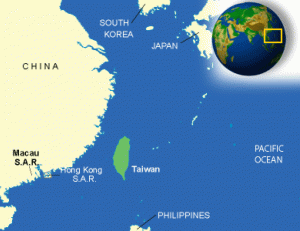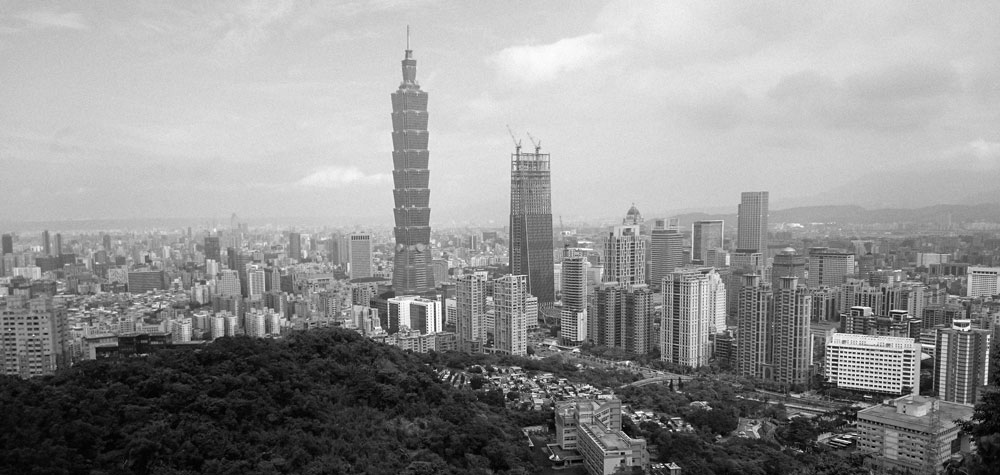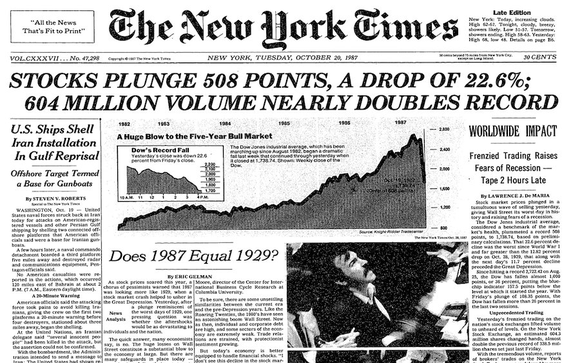by Mawer Investment Management, via The Art of Boring Blog
Insights from Taiwan
The members of our research team travel around the world with a “boots on the ground” approach to researching and meeting with targeted companies in specific geographic markets. The insights gained by these in-person visits have proven invaluable in building our portfolios and identifying some great companies run by good management teams.
From time to time we ask our team members to share the top things they learned from their trips. This week we asked Equity Analyst, Siying Li, to share her key learnings, insights, and observations from her recent two week trip to Taiwan and surrounding areas.
Snapshot of Taiwan:
Taiwan is a small island 180km east of mainland China with modern cities, traditional Chinese temples, hot springs resorts, and dramatic mountainous terrain.
Capital: Taipei
Currency: New Taiwan dollar
Population: 23.51 million (2016)
Official language: Standard Mandarin

3 reasons why Taiwan is a very investable region of the world:
- Democratic, law abiding and safe: although classified as an emerging market by the MSCI ACWI Index, Taiwan has a robust democratic political system. I witnessed various peaceful protests which demonstrated to me that people feel comfortable speaking up and see protest as an opportunity to initiate change. Taiwan’s overall crime rate is a very low 1.3% according to the Overseas Security Advisory Council (OSAC).
- Strong corporate governance: I observed that publicly traded companies have public investors’ interest top of mind, a commendable rarity compared to many other emerging markets around the world. Many companies pay a very good dividend of over 50% net income. Integrity was a word that came up frequently when I asked about corporate values.
- Access to emerging market growth: sharing the same culture and language as China allows Taiwan enterprises to be successful in China and provides them access to China’s growth trajectory. The many well capitalized companies that possess good technology are also strong entrants to SE Asia countries.
However the China-Taiwan relationship is still sensitive: the newly elected Tsai administration refuses to acknowledge the “1992 consensus,” which is an oral agreement regarding the “One China” principle. The “One China principle” refers to the view that there is only one state called “China”, despite the existence of two governments that claim to be “China”. The friction between the two regions is exemplified by the Taiwan tourism industry. Since Tsai’s inauguration, China has decreased the number of visas given to mainland tourists, which has led to a substantial drop in the number of Chinese tourists to Taiwan from 30-60%. Many tourist buses are sitting idle, and hotels are giving steep discounts. One of the protests while I was there was regarding this very issue.
Manufacturing process has become a competitive advantage: a few decades ago, manufacturing plants moved around the world in search of cheap labour. It seems as though Taiwan’s large manufacturers built a competitive advantage around their manufacturing processes through the following: increased research and development, increased automation, sourcing from the right players at the right time (sometimes this includes reinventing the entire supply chain), and building a culture of continuous improvement. Companies such as TSMC, Giant Bicycles, and Merida enjoy significant global market share in their respective industries due in part to the higher barrier to entry created by their manufacturing processes. Looking forward to the next decade, local manufacturers may enjoy a wider moat due to advancements in technology and increasing scale. In addition, certain industries may find it much more difficult to move their manufacturing facilities to other regions of the world.
Regional Bias: I was reminded how important it is to recognize different perspectives and to be aware of biases that can accumulate based on personal investment experience. Investors that grew up in North America may have very different perspectives than investors in Asia due to regional experiences. For example, we typically don’t like to invest in manufacturing companies (such as textile and automobile) because some North American investors lost money on these manufacturing companies in the last few decades and have been out competed by Asian Players. However, these same industries have experienced huge growth in Asia and many Asian investors made money over the same period.
Wireless Momentum: many Taiwanese people are using over 200 GB/month of data through their cellphones! This far surpasses the actual data caps on “unlimited” data plans that exist in Canada, some of which start as low as 20 GB/month. Some Taiwanese are also cutting their fixed lines due to the increased speed and value of wireless technology. For example, instead of paying for 100 Mbps with fiber on home plans, they’re now paying only $65-80 CAD/month for 150Mbps (4G)—for true unlimited data on their cell phones.
Stagnant Wages: the overall wage in Taiwan is not growing and hasn’t grown for the past 20 years. Young people can’t save a lot of money. University graduates typically make about $20K New Taiwan dollar (TWD) per month—approximately $840.00 CAD. After food, rent, and cell phone charges, there’s not much left. Because they are surrounded by countries with cheaper wages, the Taiwanese can really only compete on a skill vs. wage basis. I learned that PhDs and engineers could be up to 5-10 times more expensive in the U.S. compared to the similar skill level in Taiwan.
The Taiwanese are exceptionally warm & friendly: I experienced the accommodating and industrious nature of Taiwanese culture throughout my trip, but two instances stood out in particular. The first occurred when I found myself at a rural, off-the-grid hotel for a business meeting and realized there was no table in the room to work from—the staff quickly cleared and brought in a table for me from the neighbouring coffee shop. The second example occurred after I got stuck in a cab in rush hour traffic and had to call a restaurant to reschedule my reservation. Instead of rescheduling, they took my order over the phone and it was hot and ready for me upon my arrival! The restaurant did not even ask for pre-payment. I found this extra level of service evident in all facets of Taiwanese culture.
Duck tongue is chewy, yet delicious: a tasty new dish I tried was take-out duck tongue served in a paper bag. I took it back to my hotel room and ate it off the bone with my fingers while watching Taiwanese news. The duck tongues were spicy, cheap, and amazing!
This post was originally published at Mawer Investment Management











